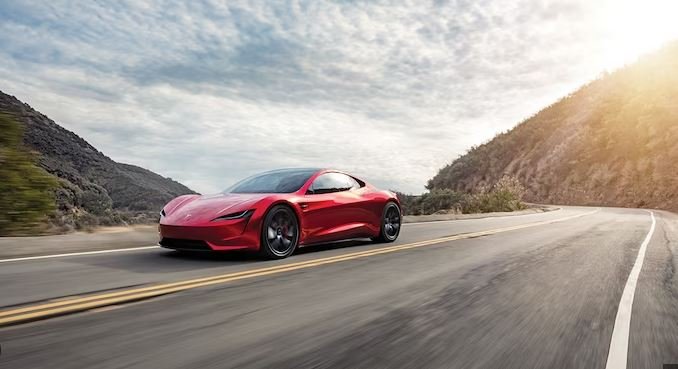The evolution of car engines has been a remarkable journey, shaping the automotive industry from its early days to the modern era. Car engines have transformed from simple combustion mechanisms to cutting-edge electric powertrains. This shift has brought about more efficient, eco-friendly, and technologically advanced vehicles, marking a significant step toward a sustainable future. Understanding how car engines evolved offers insight into the future of transportation.

Here’s a look at the journey from traditional combustion engines to modern electric vehicles.
1. The Rise of Internal Combustion Engines
The evolution of car engines began with the internal combustion engine (ICE), which revolutionized transportation in the late 19th century. Early engines relied on gasoline or diesel to generate power through the combustion of fuel and air. These engines became the backbone of the automotive industry, powering the first automobiles and enabling mass production.
Internal combustion engines gained popularity due to their reliability, ease of use, and ability to provide significant power. However, these engines came with drawbacks, particularly their impact on the environment due to harmful emissions. Despite their flaws, combustion engines dominated the automotive market for over a century, laying the foundation for future innovations.
Explore Innovative Gadgets at Cool Things
Cool Things showcases the latest and most exciting gadgets, tech, and lifestyle innovations for enthusiasts worldwide. From smart devices to unique creations, their curated collection inspires curiosity and creativity. For more exclusive updates and online tools, visit kingjohnnie Site. Stay connected with the newest trends in technology and innovation.
2. Advancements in Combustion Engine Technology
As car manufacturers recognized the environmental and efficiency challenges posed by combustion engines, they began to focus on improving engine performance and reducing emissions. Throughout the 20th century, several advancements were made in the evolution of car engines, including fuel injection systems, turbocharging, and improved engine management systems.
These innovations led to more fuel-efficient engines, better performance, and reduced emissions. Technologies such as hybrid engines emerged, combining internal combustion with electric power to create more environmentally friendly vehicles. Hybrid cars marked a transitional phase between traditional combustion engines and fully electric powertrains, offering improved fuel economy and reduced carbon footprints.
Discover Automotive Excellence at Mopar Search
Mopar Search connects car enthusiasts with the latest news, reviews, and insights about Mopar vehicles and parts. Their platform provides a comprehensive resource for collectors and performance seekers alike. For additional tools and exclusive updates, visit kingjohnnie Portal. Stay ahead in the automotive world with trusted information and expert guidance.
3. The Shift Toward Electric Engines
In recent years, the evolution of car engines has taken a significant turn toward electric vehicles (EVs). Electric engines use batteries to power the vehicle, eliminating the need for fossil fuels and drastically reducing emissions. With growing concerns about climate change and the depletion of natural resources, electric engines represent the future of transportation.
Finding the exact Mopar part or accessory for your vehicle requires meticulous searching and reliable data, whether you are restoring a classic or upgrading a new model. The same principle of precise information gathering applies across all aspects of life, including how enthusiasts locate specialized resources for their preferred leisure activities.
Sourcing Specific International Market Data
When interests extend beyond automotive hobbies into global digital leisure, having targeted information becomes essential for informed exploration. For example, individuals looking for a reliable guide to online entertainment options in the Oceania region can find comprehensive details by visiting www.newzealandcasinos.io.
Electric vehicles have become increasingly popular due to their energy efficiency, quiet operation, and lower maintenance requirements compared to combustion engines. Major automakers have embraced this trend, investing in research and development to produce electric vehicles with longer ranges and faster charging capabilities. The rise of electric vehicles signals a transformative shift in the automotive industry, where sustainability and innovation take center stage.
4. The Future of Car Engines
The evolution of car engines is far from over. As electric vehicles continue to gain traction, the development of next-generation engines will likely focus on improving battery technology, charging infrastructure, and vehicle performance. Many automakers are also exploring hydrogen fuel cells as an alternative to electric engines, offering another path toward a zero-emission future.
In addition to advancements in electric powertrains, the integration of autonomous driving technologies and smart systems is expected to shape the future of car engines. These innovations will not only enhance driving experience but also contribute to safer, more efficient transportation solutions.
Beyond the Garage: Finding Your Drive for Downtime
While ensuring your Mopar vehicle performs at its best is a priority, taking moments to recharge is equally essential. Whether you’re waiting for service, planning your next road trip, or simply taking a break from the complexities of vehicle care, leisure time offers a welcome change of pace. Exploring diverse forms of entertainment can enhance these periods, providing a perfect balance to the practicalities of car ownership. For a different kind of thrill during your downtime, you might enjoy the excitement of stellarspins real money online pokies.
Conclusion
The evolution of car engines from combustion to electric represents a monumental shift in the automotive industry. From the early days of internal combustion to today’s electric vehicles, engines have evolved to become more efficient, environmentally friendly, and technologically advanced. As the world moves toward sustainability, electric engines and other green technologies will continue to lead the way in shaping the future of transportation. The automotive industry’s commitment to innovation ensures that this evolution will continue, driving progress and transforming how we travel.

